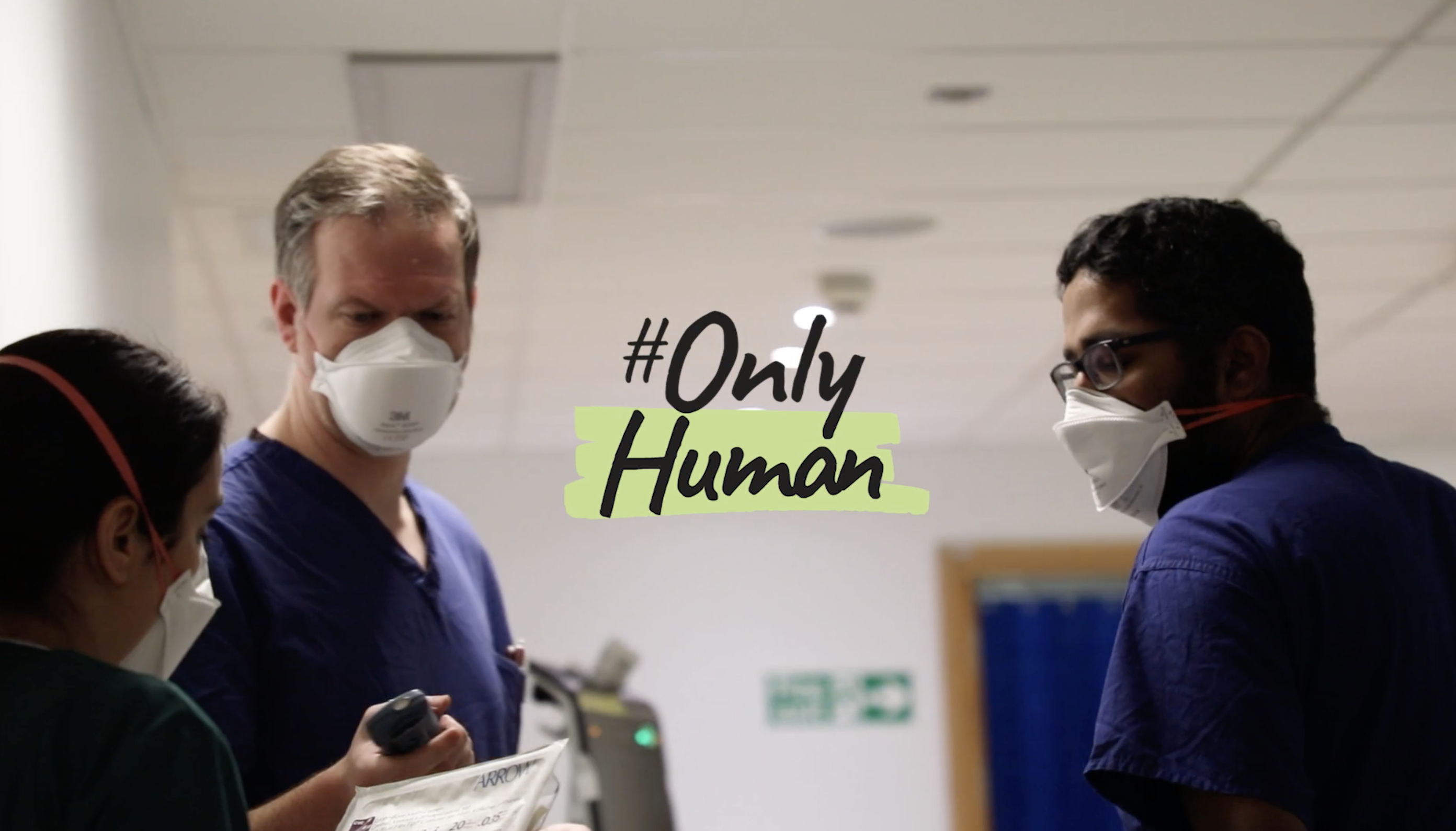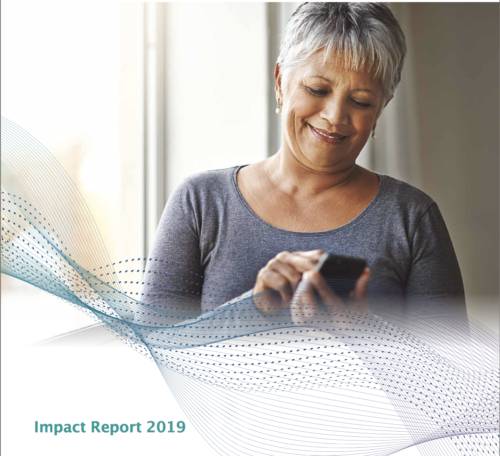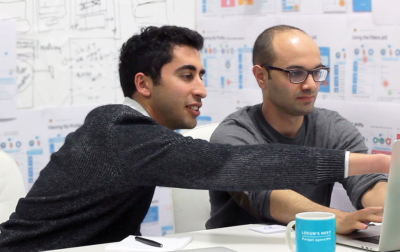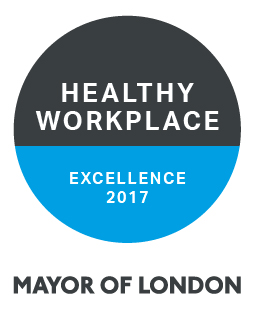Featured on BBC London TV news and in the Revealing Reality-produced film above, King’s College Hospital (KCH) has adopted the HIN’s behavioural science workforce support campaign #OnlyHuman to help prevent staff burnout caused by the pressures of the Coronavirus pandemic.
Key statistics
King’s College Hospital NHS Foundation Trust employs over 11,000 staff.
Hundreds of staff at King’s College Hospital have embraced ‘nudge theory’ to help protect their wellbeing during the pandemic.
The hospital has become the first to adopt a workforce-wide campaign called #OnlyHuman that uses behavioural insights to prompt frontline staff to take action that helps protect their physical and mental wellbeing. The move comes after King’s trialled the campaign last year and emergency and critical care teams reported a positive impact during a highly challenging period during the pandemic.
The campaign takes a peer-to-peer approach to prompt staff, who sometimes struggle to identify
signs of stress in themselves, to spot early signs of strain within colleagues and use these tools to then take simple actions. These include check in with colleagues regularly to make sure they’re taking breaks, drinking enough water, implementing brief huddles before and after shifts and simply showing kindness to each other.
Behavioural experts maintain that if staff can are prompted to use these behaviours, this creates a ripple effect because social cues reinforce the behaviours and embed them into the workforce.
Devised at pace over eight weeks in response to Covid-19, behavioural insight specialists worked in conjunction with healthcare professionals across multiple trusts to identify key themes to address. The themes included: Checking in, Recharging, Managing Uncertainty, Warming up and down and Kindness.
This was a joint project between behavioural research specialists Revealing Reality and the NHS’s Health Innovation Network, funded by The Health Foundation.
Dr Claire McDonald, Principal Clinical Psychologist and Lead Psychologist for Staff Support at King’s College Hospital, said:
“The Covid-19 pandemic has been an unprecedented time for our frontline health and care staff. Staff have worked tirelessly to care for patients including those who have been critically ill. There is also the broader context of fear and uncertainty about the risks and evolving situation, coupled with an erosion of our natural ways of coping due to restrictions.
“This understandably takes a toll, as we are ‘Only Human’. That’s why we rolled out the campaign, as one strand of our KCH staff support offer, to encourage staff to look after themselves and each other through various tips and simple measures. We brought the campaign into our Wellbeing Hubs and many teams and departments including Emergency and Critical Care. To provide the very best care to patients our staff first need to be well resourced. Extra levels of stress require extra levels of self-care and looking out for each other.”
KCH’s Christine Brown Intensive Care Unit (ICU) Team Leader Mairead Trant said:
“I think this is a fantastic initiative to help frontline staff cope with the emotional strain that sometimes comes with the work we do. It’s important that we take time to look after ourselves and each other and reflect on what happens each day.
“By taking time to talk to someone you trust, it can help greatly to ease the stress and improve mental wellbeing. This initiative really focuses on this theme and will have huge health benefits for staff.”
“I think this is a fantastic initiative to help frontline staff cope with the emotional strain that sometimes comes with the work we do.”KCH’s Christine Brown Intensive Care Unit (ICU) Team Leader Mairead Trant.
Health Innovation Network Programme Director in the Patient Safety and Experience team Catherine Dale said:
“It’s great that King’s College Hospital staff found our #OnlyHuman campaign useful during Covid-19 and have since adopted it.
“When the pandemic hit we recognised the emotional toll it was taking on healthcare staff. Behavioural insights – also known as ‘nudge theory’ – encourage people to act in helpful ways. We applied this approach to develop a suite of materials to help healthcare professional support each other during these enormously challenging times.”



